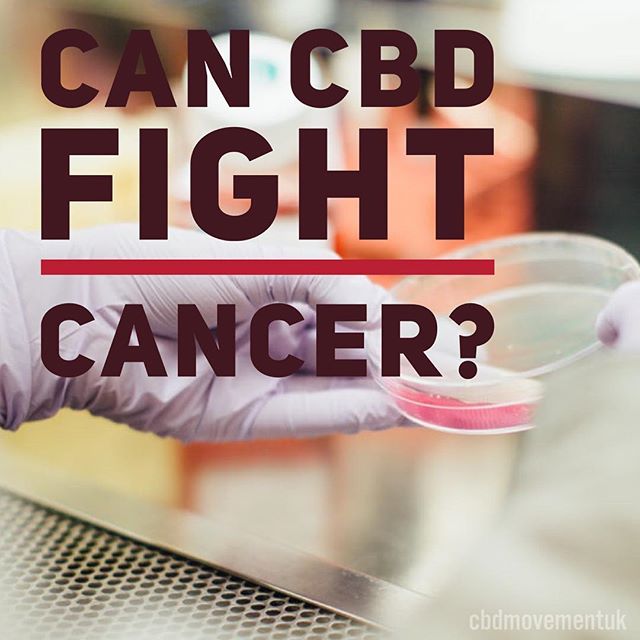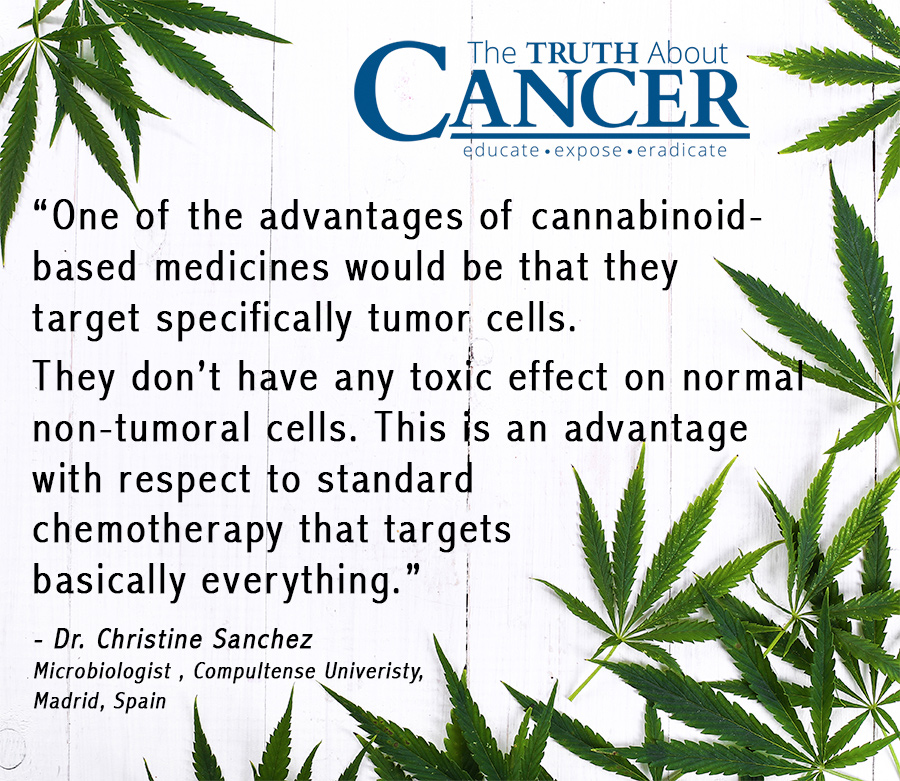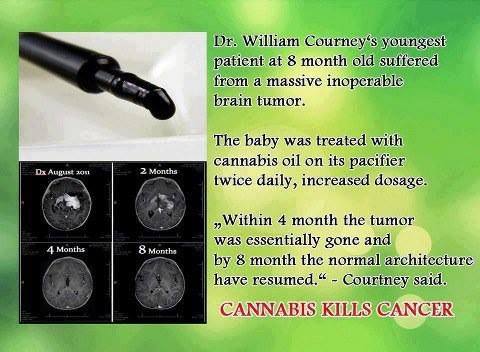
cbdmovementuk Some studies investigated the role of CBD in preventing cancer cell growth, research is still in the early stages. The National Cancer Institute (NCI) has said that CBD may help alleviate cancer symptoms and cancer treatment side effects. However, the NCI doesn’t fully endorse any form of cannabis as a cancer treatment. The action of CBD that’s promising for cancer treatment is its ability to moderate inflammation and change how cell reproduce. CBD has the effect of reducing the ability of some types of tumor cells to reproduce.
For over half her life, 10-year-old Hailey Steward has been battling leukemia. It was a battle that has seen her cancer go into remission but then come back, which has repeated more than once. This past May, the cancer became far more aggressive, which saw the young girl head to Boston in the hopes of a bone marrow transplant. But instead of the transplant, Hailey and her parents were told that there was nothing doctors could do, since Hailey had cancer cells in 60 percent of her bone marrow. It meant Hailey would be heading back to hospice care. As Hailey’s life expectancy was downgraded to just a couple of weeks, her parents chose to use cannabis oil to help with her pain relief. That’s also when her mother chose to stop with the steroids and fentanyl, and replace them with cannabis oil.
But those weeks quickly turned into more weeks. The progress from using the cannabis oil was so good that doctors at the Maine Children’s Cancer Program couldn’t believe it. Now, after eight weeks of using the oil, the 60 percent cancer in Hailey’s bone marrow has dropped down to 15 per cent
– the cancer is going away.

CBD Educational Video’s
Frequently asked questions
Decide how you want to take cannabis. Cannabis oil is available in sprays, capsules, edibles and other products.
Find your ratio. Cannabis products have varying amounts of CBD and THC. A high CBD or high THC product is not necessarily superior to a strain with a balanced ratio. Find the proper combination to optimize your therapeutic use of cannabis.
Begin with a low dose especially if you have little or no experience with cannabis.
Take a few small doses over the course of the day rather than one big dose.
Use the same dose and ratio for several days. Observe the effects and if necessary adjust the ratio or amount.
Don’t overdo it. “Less is more” is often the case with cannabis therapeutics.
Be aware of possible side effects. Cannabis is a safe and forgiving medicine.
Depending upon delivery method and individual tolerance, it can amplify anxiety and mood disorders. Other possible side effects are dry mouth, dizziness and faintness.
Consult your health counselor. Proceed cautiously, especially if you have a history of alcohol or drug abuse, mental illness, or are pregnant or breastfeeding.
Although banned by federal law, dosed cannabis medicine is currently available in the form of concentrated oil extracts, infused sublingual sprays, capsules, edibles, and other products. Potent cannabis oil extracts have varying ratios of CBD and THC that are calibrated to suit the needs and sensitivities of each patient.
For anxiety, depression, spasms, and pediatric seizure disorders, many patients initially find they do best with a moderate dose of a CBD-dominant remedy (a CBD:THC ratio of more than 10:1). But a low THC remedy, while not intoxicating, is not necessarily the best therapeutic option. A combination of CBD and THC will likely have a greater therapeutic effect for a wider range of conditions than CBD or THC alone. For cancer, neurological disease, and many other ailments, patients may benefit from a balanced ratio of CBD and THC. Extensive clinical research has shown that a 1:1 CBD:THC ratio is effective for neuropathic pain. Optimizing one’s therapeutic use of cannabis may entail a careful, step-by-step process, whereby a patient starts with small doses of a non-intoxicating CBD-rich remedy, observes the results, and gradually increases the amount of THC.
In essence, the goal is to self-administer consistent, measurable doses of a CBD-rich remedy that includes as much THC as a person is comfortable with.
The Biphasic Effect
Cannabis compounds have biphasic properties, which means that low and high doses of the same substance can produce opposite effects. Small doses of cannabis tend to stimulate; large doses sedate. Too much THC, while not lethal, can amplify anxiety and mood disorders. CBD has no known adverse side effects at any dose, but drug interactions can be problematic. An excessive amount of CBD could be less effective therapeutically than a moderate dose. “Less is more” is often the case with respect to cannabis therapy.
“Dosage is everything”—Paracelsus
Cannabis therapeutics is personalized medicine. The right treatment regimen depends on the person and condition being treated. For maximum therapeutic benefit, choose cannabis products that include both cannabidiol (CBD), a non-intoxicating compound, and tetrahydrocannabinol (THC), the psychoactive component of cannabis. CBD and THC interact to enhance each other’s therapeutic effects. They work best together. A patient’s sensitivity to THC is a key factor to determining the ratio and dosage of CBD-rich medicine. Many people enjoy the cannabis high and can consume reasonable doses of any cannabis product without feeling too high or dysphoric. Others find THC unpleasant. CBD can lessen or neutralize the intoxicating effects of THC. So a greater ratio of CBD-to-THC means less of a “high.”
CBD is one of over 60 compounds found in cannabis that belong to a class of ingredients called cannabinoids. Until recently, THC (tetrahydrocannabinol) was getting most of the attention because it’s the ingredient in cannabis that produces mind-altering effects in users, but CBD is also present in high concentrations — and the medical world is realizing that its list of medical benefits continues to grow.
CBD is the major nonpsychoactive component of Cannabis sativa. According to a 2013 study published in the British Journal of Clinical Pharmacology, CBD benefits including acting in some experimental models as an anti-inflammatory, anticonvulsant, antioxidant, antiemetic, anxiolytic and antipsychotic agent, and is therefore a potential medicine for the treatment of neuroinflammation, epilepsy, oxidative injury, vomiting and nausea, anxiety and schizophrenia.



